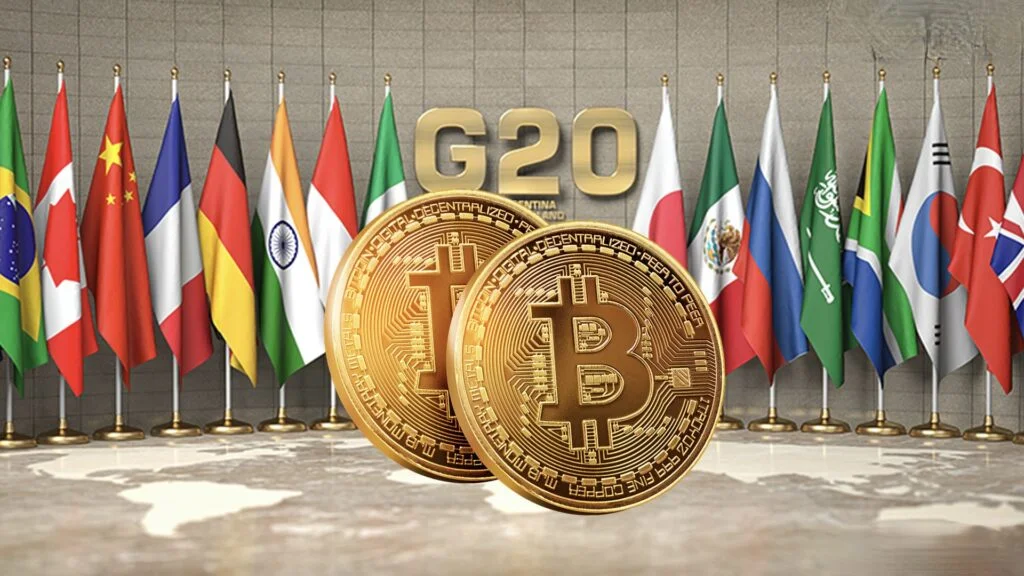G20 Finance Ministers and Central Bank Governors Release Crypto Roadmap for Global Regulation and Collaboration in Marrakesh Communiqué.

The G20 Finance Ministers and Central Bank Governors (FMCBG) have agreed on a road map to address the challenges posed by cryptocurrency assets such as bitcoin, Ethereum, and others and to investigate the opportunities they present. The International Monetary Fund (IMF) and the Financial Stability Board (FSB) proposed the road map in a joint paper.
G20 Roadmap For Cryptocurrency Assets
The synopsis paper outlines a comprehensive plan for fostering global crypto asset policy and regulation. It emphasizes the necessity of addressing the specific effects of these assets on emerging markets and developing economies (EMDEs).
This paper focuses on five essential areas: policy frameworks, outreach beyond G20 jurisdictions, global coordination and cooperation, information sharing, and filling data gaps.
The G20 FMCBG communiqué, released on Thursday following their fourth and final meeting under the Indian presidency in Marrakech, Morocco, stated:
“We adopt the roadmap proposed in the Synthesis Paper as a G20 Roadmap on Crypto Assets…We call for swift and coordinated implementation of the G20 Roadmap, including implementation of policy frameworks; outreach beyond G20 jurisdictions; global coordination, cooperation and information sharing; and addressing data gaps,”
The communiqué stated that the G20 FMCBG would require regular and structured updates on the roadmap’s implementation from the IMF and FSB. In addition, it expressed support for the Financial Action Task Force’s (FATF) ongoing work and global adoption of crypto asset standards.
G20 Agreement on Cryptocurrency
The ratification of the roadmap conforms to the consensus reached at the most recent G20 Leaders’ Summit in New Delhi. During this summit, leaders endorsed the synthesis paper as the basis for future crypto asset research.
In addition, they advocated for the swift implementation of a crypto-asset reporting framework to increase tax authorities’ visibility into crypto transactions and their participants.
The G20 leaders acknowledged that while crypto assets may offer advantages in terms of financial inclusion, innovation, and efficiency, they also pose risks related to consumer and investor protection, market integrity, tax evasion, money laundering, and terrorism financing.
G20 Initiatives to Strengthen Multilateral Development Banks
In addition to crypto assets, the G20 FMCBG communique addressed several significant topics. These included the strengthening of multilateral development banks (MDBs), the management of global debt vulnerabilities, the improvement of cross-border payments, and the support for a sustainable recovery from the COVID-19 pandemic.
According to the communique, the ministers pledged to drive ambitious efforts in evolving and reinforcing MDBs to confront the global challenges of the 21st century, with a particular emphasis on meeting the development needs of low- and middle-income countries.
In addition, it stresses the need for further proactive implementation of the G20 Independent Review of MDBs’ Capital Adequacy Frameworks (CAFs) within MDBs’ government structures to ensure their long-term financial sustainability.
